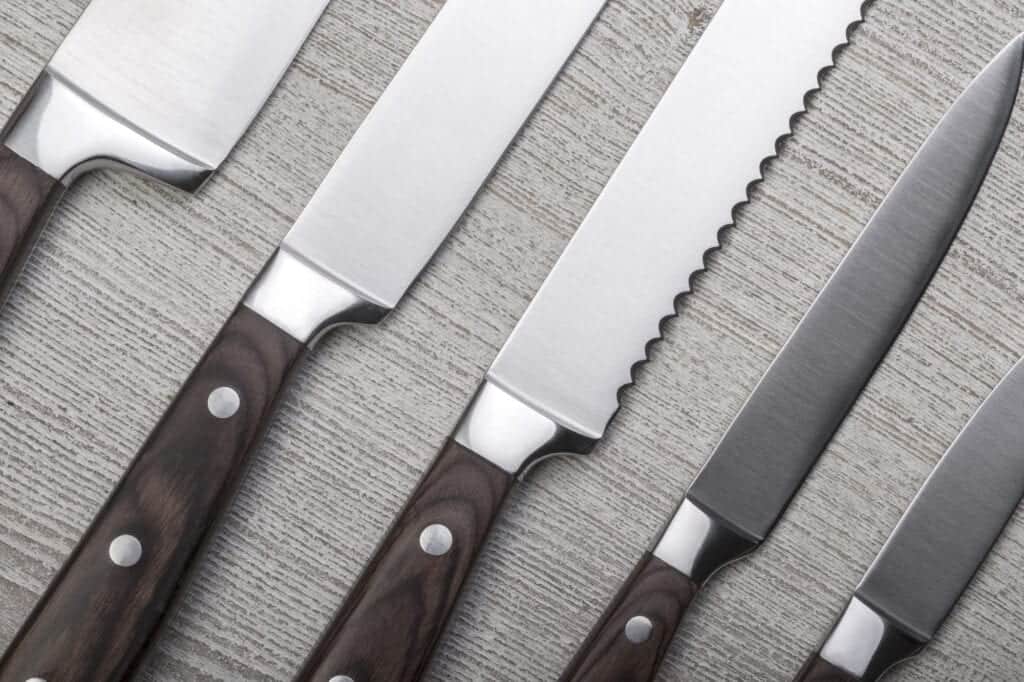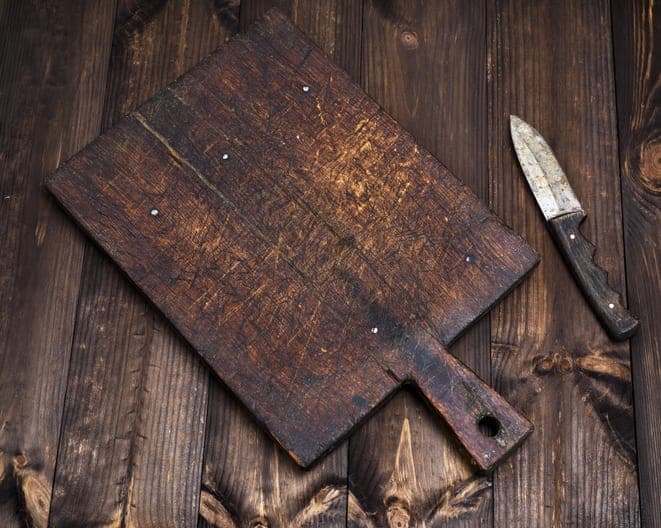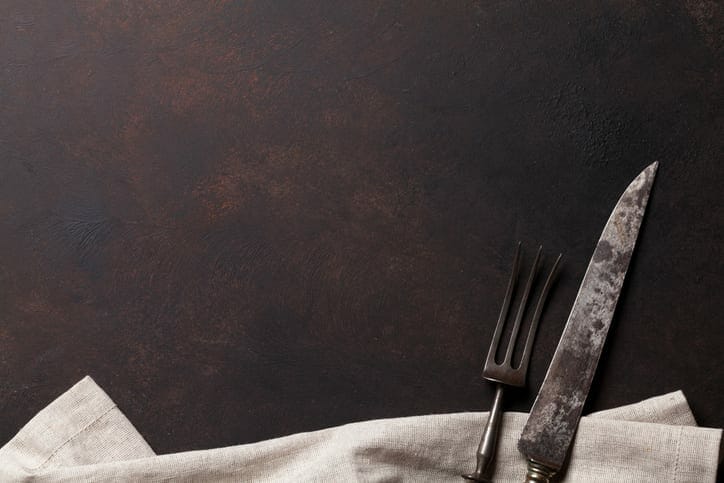A reliable knife kit is the best friend of professional chefs and home cooks alike. Quality kitchen knives ensure even cuts and help improve cooking. Still, even the strongest blades lose their edges over the years.
To prevent dulling from the outset, it’s important to sharpen your knives on the regular. Yet, even many knives that are dullest to the highest degree are revivable with the right care.
Still, a dull knife might tempt you to move on to a new model. Knives dent, chip, and break, as well. At a certain point, you need to know how to dispose kitchen knives.
Not knowing how to dispose of kitchen knives safely can put your household and sanitation workers at risk. Broken knives are still sharp, and you shouldn’t toss duller knives like normal trash, either.
If you have a backlog of old knives and this is news to you, don’t worry. It’s not too late to learn how to dispose of sharp kitchen knives. Keep reading and you’ll have all you need to know to be a responsible knife owner from this moment forward.

Are You Sure They Aren’t Still Usable?
Over the years, society became focused on replacement instead of maintenance and repair. This “disposable society” is expensive and wasteful, and contributes to massive landfills that threaten the environment and human health.
Sometimes, there’s no avoiding throwing things away. Stuff breaks and not everything is recyclable. Yet, knives are more durable than many give them credit for.
Before you decide to get rid of your kitchen knives, see if you can sharpen them. If the blade isn’t dented or chipped to a severe degree, your knife may be a good candidate for sharpening.
Believe it or not, it’s possible to get lots of nicks and dents out of knives. This is something you can do on your own, or you can bring your knives to a professional. Yet, it’s not hard to sharpen your own knives with the right equipment and knowledge.
Deciding to sharpen your knives so you can keep using them has a variety of benefits.
Sharpening an old knife reduces human impact on the environment and removes any chances sanitation workers might get hurt. It also saves you money and a trip to the store for a new kitchen tool.
Another thing to consider is that a new kitchen knife has a new grip and a different feel on your hand. Even if you get a new exact copy of what you had, the knife won’t be the same as the well-loved old standby you’re considering throwing away. Sharpening your old knife could be better for your cooking than buying a new knife is.
Donating Kitchen Knives to Charity or for Resale
Another way how to dispose of old kitchen knives is to donate them to somebody else. This avoids the environmental dilemma posed by throwing knives away. It also grants someone the opportunity to enjoy knives that served you well over the years.
You may not want to take the time to sharpen your old knife, but there are plenty of people on the hunt for kitchen tools that like to fix things up and are just as happy buying used instead of new.
Resale shops like The Salvation Army sell donated items at a discounted price, and donating knives you don’t want could help someone on a tight budget afford a high-quality utensil. Without donors like you, many people wouldn’t otherwise be able to get the cooking gear they need. Another advantage of donating to organizations like that is that they might award you store credit for your contribution.
You might also consider donating old kitchen knives to charities for their use. Organizations like soup kitchens and churches are sometimes on the lookout for the tools they need to serve satisfying meals to the needy and reach out to the public to help.
Creative Uses for Old Kitchen Knives
If you’ve been spending more time in your house due to the COVID-19 pandemic, you might be out of home projects and interesting things to do. If you have old table knives or dull chef’s knives that are safe to work within creative ways, you can have fun with old cutlery.
You could put old knives on the wall as decorations, or repurpose them as table centerpieces. Another fun idea is to make wall art on paperboard or canvas using unwanted knives. You can position the utensils on paperboard or canvas, and trace around them.
Or, you can spray paint over the knives. When you remove them from the backing, the shape remains. You could make a modern, abstract piece using different kinds of kitchenware or other objects with this technique.
Art like this looks great on kitchen walls and behind dining room tables. If you make something cool enough, you might even be able to sell it on Etsy or another place you can sell crafts.

How to Dispose Kitchen Knives as Scrap Metal
Another thing you can do with unwanted kitchen knives is to bring them to a recycling center or scrap metal buyer. You’ll want to check with your local centers because regulations on disposal vary. Most recycling centers are owned by major authorities, but there might be independent scrap metal collectors that will take your cutlery, too.
Scrap metal buyers often want certain kinds of metal and not others, and some may not accept knives at all. Finding a sure bet near you via the internet and by calling around will save you the hassle of driving to a recycling center to find that you can’t get rid of your knives there after all.
If you want to send your old knives to a scrap metal recycler, do some research into what kind of metal the blades are made of. The manufacturer might have printed the material on the blade, or you can find out by comparing it to pictures on the internet.
To help you figure it out, you should test the blade with a magnet. Magnets don’t stick to most kinds of stainless steel and aren’t drawn to sterling silver, either. In case it isn’t obvious, make sure that your knife is metal and not ceramic or another material to save yourself embarrassment.
Non-magnetic metal tends to be more valuable and the above metals are common materials for knives. If your local scrap metal collector takes knives and you have a good amount, you might be able to earn some money.
Trash Your Knives as a Last Resort
After reading the last few tips and reviewing your old knives, you should be less inclined to put your knives in your curbside garbage. Nobody wants to contribute to problematic landfills or to waste functional goods. However, you may still have some knives that aren’t usable and won’t be accepted as scrap metal.
In this case, there are some precautions you should take before throwing old knives in the trash. You might not think of working in sanitation as a dangerous job. Yet, garbage collecting comes with serious risks.
First off, before preparing to throw a broken knife away, you need to check regulations for where you live. Knives may or may not be considered “sharps” waste in your area.
If you are throwing away pieces of a knife that are still sharp, it may be wise to treat them as sharps waste and throw them in a red sharps container. That will ensure the pieces don’t cut anybody.
If the blade isn’t at its sharpest and the powers that be let you throw knives away for curbside pickup, make them as safe as can be before putting them in the can. First, wrap the blade. Many people use old newspapers or bubble wrap.
Tape the layers of padding down with strong tape. After you pad the knife, fold a piece of thick cardboard over the blade and tape it together.
Some people go one step further and put the taped-up knife in a box that they seal before throwing it away. There’s no harm in being extra careful to prevent injuries.
These steps also stop the blade from escaping as you lift the garbage bag. Nobody wants a smelly mess in the house when the trash bag rips!
Your Home for High-Quality Knife News and Information
Now that you know how to dispose kitchen knives the right way, you can retire old implements and refresh your knife set without worries. Chances are, you didn’t know all of this information and you surely don’t know everything else there is to know about knives, either.
Quality information about knives of all kinds is essential for responsible knife owners. That’s what Steel Snob is all about: Educating the average person to help you get the most from your knives and to stay safe while using them.
If you’re inspired to learn more about responsible and effective blade ownership and have a question, drop a line today.

